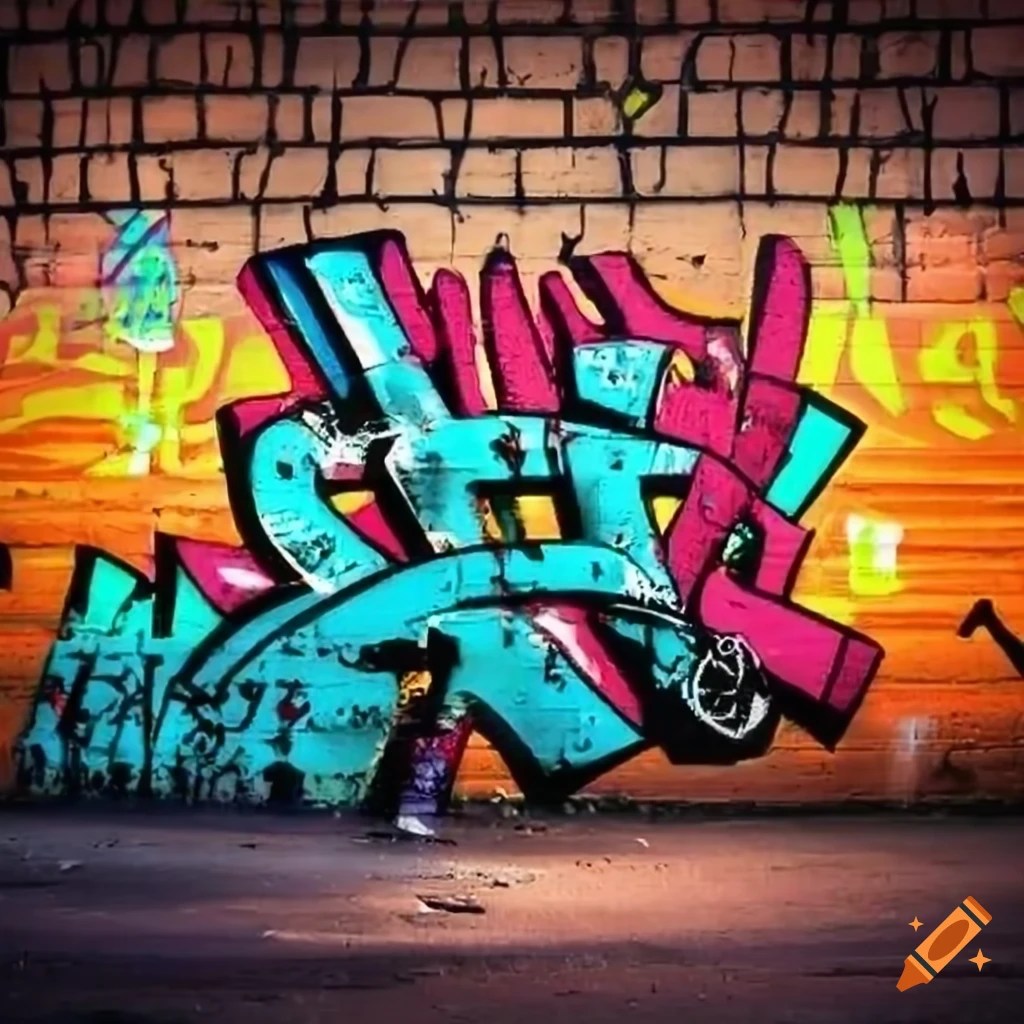What is Considered Graffiti? A Look at Art vs. Vandalism
Is it rebellious art or mindless vandalism? The line between creative expression and property defacement can be blurry when it comes to graffiti. What started as simple markings on walls has evolved into a complex cultural phenomenon, sparking debates and challenging traditional notions of art.
The perception of graffiti is often polarized. Some see it as a blight on the urban landscape, a symbol of decay and disregard for public property. Others view it as a vibrant form of street art, a raw and unfiltered expression of creativity that breathes life into concrete jungles.
Understanding what constitutes graffiti involves delving beyond surface judgments. It requires exploring its historical context, the motivations behind it, and its impact on both urban environments and societal perceptions. This exploration unveils a world where artistic merit intersects with legal boundaries, raising questions about ownership, public space, and the very definition of art itself.
Graffiti, in its rawest form, is the act of applying markings or drawings to surfaces, typically without permission. While spray paint is often associated with graffiti, the medium can vary widely, encompassing markers, pens, scratches, and even stickers. This unauthorized nature is often what distinguishes graffiti from murals or public art, which are typically commissioned or created with consent.
The intent behind the marking often plays a crucial role in determining whether it's considered art or vandalism. A thoughtfully crafted mural conveying a social message might be celebrated for its artistry and commentary, while a crudely scrawled tag on a historic building would likely be condemned as vandalism. The context, location, and execution all contribute to the public's perception and the legal ramifications.
Advantages and Disadvantages of Graffiti
| Advantages | Disadvantages |
|---|---|
Can revitalize neglected areas Provides a platform for artistic expression Can foster community identity | Can be perceived as vandalism and property damage May contribute to a sense of urban blight Can spark territorial disputes and gang activity |
Common Questions and Answers About Graffiti
1. Is all graffiti illegal?
Not necessarily. Graffiti created with permission from property owners or on designated legal walls is generally acceptable. However, unauthorized graffiti is illegal in most jurisdictions.
2. Can graffiti ever be considered art?
Absolutely. Many consider elaborate murals and pieces created by skilled artists to be a legitimate form of art. The distinction often lies in the execution, intent, and context.
3. What is the difference between graffiti and street art?
While the terms are sometimes used interchangeably, street art often refers to work created with a focus on aesthetics and message, while graffiti may encompass simpler tags or markings.
4. What are the penalties for illegal graffiti?
Penalties vary widely depending on the location and severity of the offense. They can range from fines to community service to imprisonment in some cases.
5. How can communities address graffiti issues?
Approaches vary, from strict enforcement and cleanup efforts to providing legal graffiti walls and engaging with artists to promote positive expression.
6. Has graffiti always existed?
Markings and drawings on walls and surfaces have been found throughout history, dating back to ancient civilizations, showcasing a human impulse to leave a mark.
7. Are there famous graffiti artists?
Yes, several graffiti artists have gained international recognition, like Banksy, whose work often carries social and political commentary.
8. Can graffiti be removed?
Yes, graffiti removal involves various methods, including chemical cleaners, power washing, and painting over the affected areas.
The world of graffiti is complex and multifaceted. It's a realm where art and rebellion intersect, where vibrant creativity clashes with concerns about vandalism. Understanding the nuances, appreciating the artistry when present, and engaging in thoughtful dialogue about responsible expression are essential for navigating the evolving landscape of this often-controversial art form.

4 Times Graffiti Should Be Considered Art | Kennecott Land

Graffiti painting of ingrid bergman on Craiyon | Kennecott Land

Graffiti Letters Styles, Grafitti Letters, Graffiti Lettering Fonts | Kennecott Land

Download Graffiti Art, Cyborg Women, Vector Drawing. Royalty | Kennecott Land

Graffiti tutorial on Craiyon | Kennecott Land

Can Graffiti Ever Be Considered Art? | Kennecott Land

Can Graffiti Be Considered Art? | Kennecott Land

Surreal portrait with graffiti overlay on Craiyon | Kennecott Land

Colorful graffiti on a wall on Craiyon | Kennecott Land

3D Wallpaper, HD Wallpaper, iPhone Wallpaper, Android Wallpaper | Kennecott Land

Graffiti art portrait of a veiled indian woman on Craiyon | Kennecott Land

Colorful graffiti artwork on Craiyon | Kennecott Land
Download Graffiti Stair Ramp Sprite 001 | Kennecott Land

Graffiti Wall Art, Street Art Print, Colour Street, Melbourne Poster | Kennecott Land

what is considered graffiti | Kennecott Land